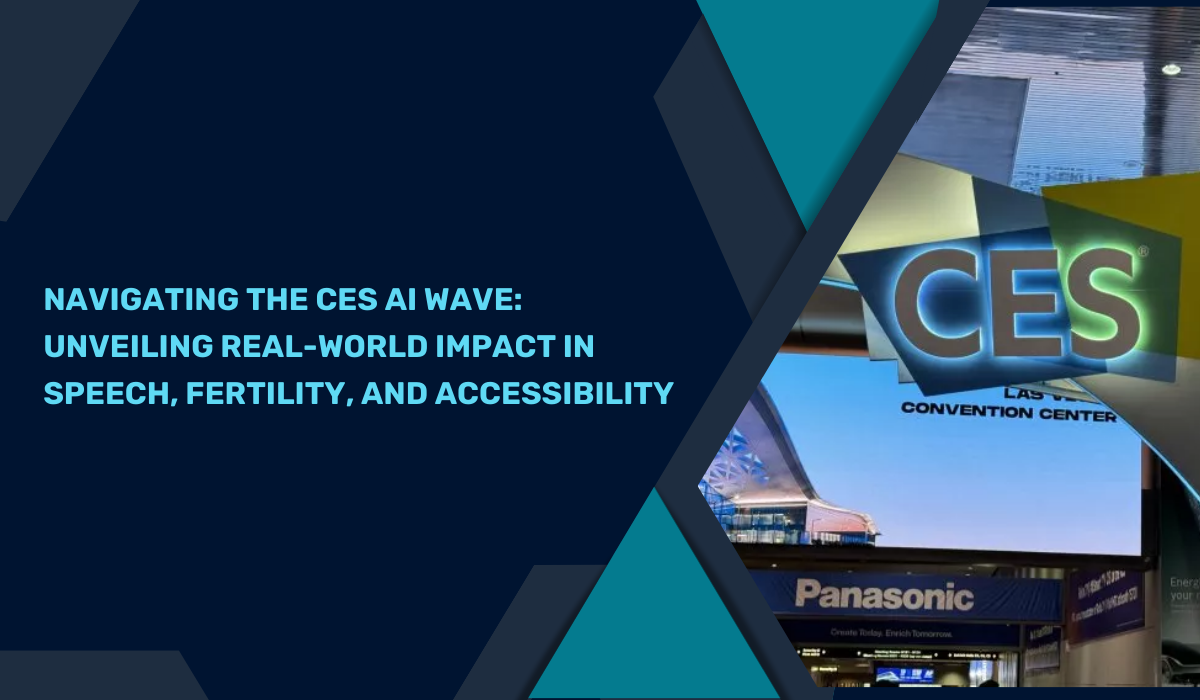
AI took center stage at CES 2024, with companies touting its potential to revolutionize various aspects of our lives. Amidst the multitude of claims, a few applications of machine learning emerged as genuinely helpful and surprising, offering potential benefits in healthcare, fertility tracking, accessibility, and elder care.One standout application is Whispp, a small team dedicated to giving a voice to the voiceless. Focused on individuals facing challenges in speaking due to conditions like throat cancer or injuries, Whispp synthesizes voices from whispers, providing an alternative to traditional electronic voice boxes. Overcoming challenges in speech recognition for whispers, Whispp's innovation extends its benefits to those who stutter, showcasing AI's potential in augmenting communication for a wider audience.
French startup Louise showcased its AI-driven fertility tracking and advice platform. Primarily a B2B service working with hospitals and fertility clinics, Louise's machine learning capabilities sift through vast datasets to identify biomarkers for improving fertility. CES marked the launch of their first B2C offering, the Olly app, providing a comprehensive fertility journey for both men and women, with a global release planned for February 14.The rabbit r1, a pocket AI assistant, gained attention for its potential in aiding people with vision impairments. Unlike traditional voice assistants limited to specific tasks, the r1 is designed to operate any phone or web app through a ChatGPT-like voice interface. If it lives up to its claims, the r1 could be a valuable tool for those who struggle with traditional computer interfaces.
In the realm of elder care, ElliQ stood out with its devices designed for assistive care facilities. These AI-powered "robots" engage in natural conversations with older adults, offering companionship and assistance. Utilizing a large language model, ElliQ enhances engagement by discussing various topics, providing an avenue for seniors to stay connected and informed, while also ensuring safety through features like call monitoring and caregiver communication.While CES showcased numerous AI applications, these examples highlight the positive impact of machine learning on everyday life. Despite the hype surrounding AI, these innovations demonstrate its potential to address real-world challenges and improve the quality of life for diverse populations.